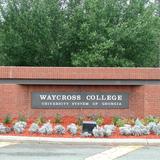- Altamaha Technical College is accredited by the Accrediting Commission of the Council on Occupational Education. The Council on Occupational Education is recognized by the U.S. Secretary of Education as a reliable authority concerning the quality of education or training offered by institutions of higher education. This accreditation and recognition affords Altamaha Technical College students the right to obtain federal financial assistance. Altamaha Technical College, a unit of the Technical College System of Georgia, is an academic institution of higher education that supports the economic empowerment of people, communities, and businesses along the Altamaha River and southern coast through providing technical education programs at the associate degree, diploma, and certificate levels; a variety of workforce development services; and adult education programs. Altamaha Technical College will be the premier, regional center of higher education for learning, teaching and building thriving communities.
School Highlights
Altamaha Technical College served 1,420 students (28% of students were full-time).
Minority enrollment was 35% of the student body (majority Black), which was less than the state average of 61%.
School Overview
Altamaha Technical College
(GA) Community College Avg.
Carnegie Classification
Item not available
Associates--Public Rural-serving Medium
Institution Level
At least 2 but less than 4 years
At least 2 but less than 4 years
Institution Control
Public
Public
Total Faculty
96 staff
209 staff
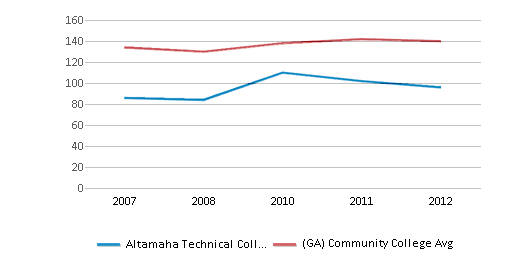
Student Body
Total Enrollment
1,420 students
2,242 students
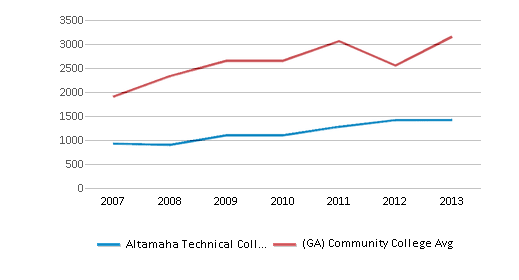
Student : Teacher Ratio
n/a
18:1
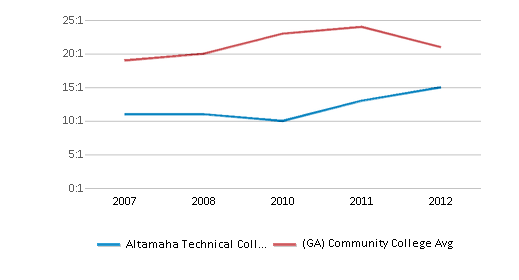
# Full-Time Students
400 students
882 students
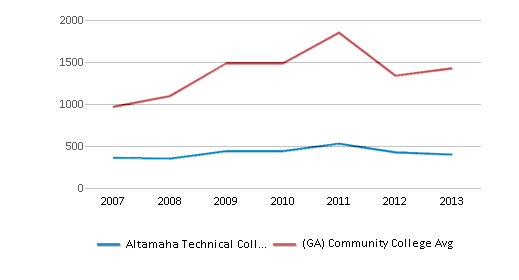
# Part-Time Students
1,020 students
1,722 students
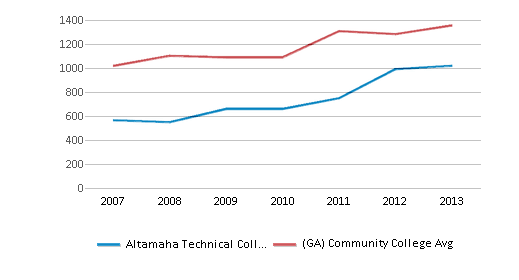
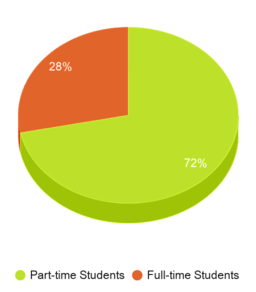
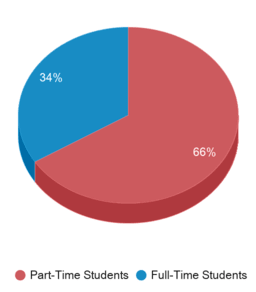
# Enrollment Undergraduate
n/a
299 students
# Full-Time Undergraduate Students
1,420 students
929 students
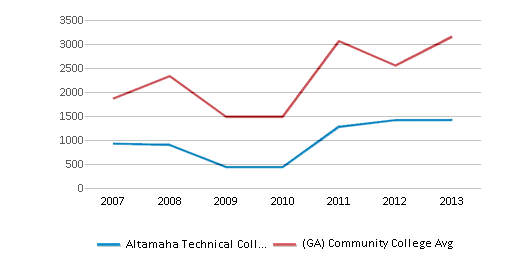
# Full-Time Graduate Students
n/a
87 students
# Part-Time Undergraduate Students
1,020 students
1,891 students
# Part-Time Graduate Students
n/a
53 students
Total Dormitory Capacity
n/a
654 students
% Asian
n/a
4%
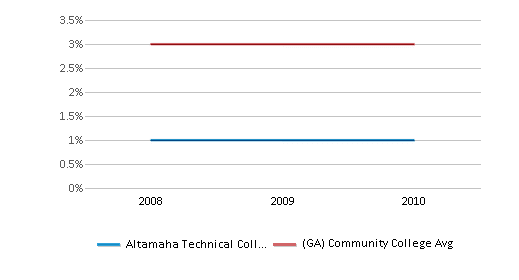
% Hispanic
3%
10%
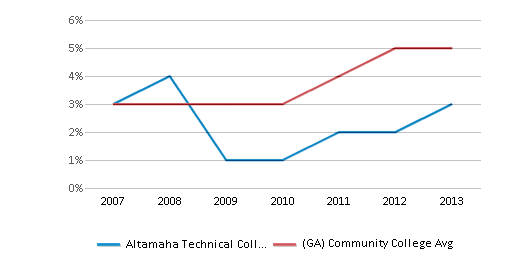
% Black
22%
35%
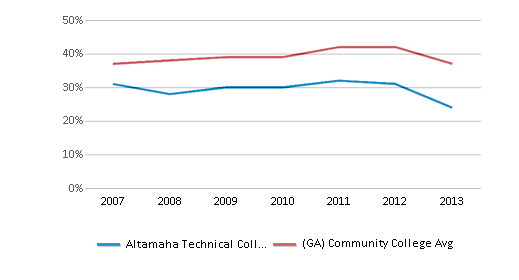
% White
65%
39%
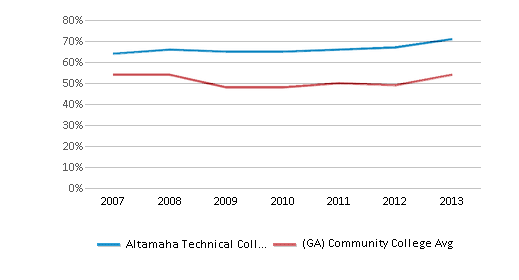
% Hawaiian
n/a
1%
% Two or more races
n/a
3%
% Non Resident races
n/a
1%
% Unknown races
10%
7%
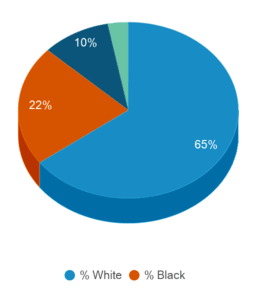
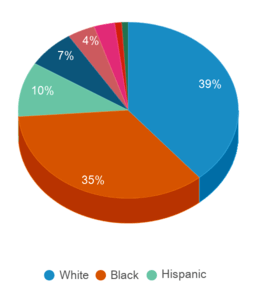
Diversity Score
0.53
0.71
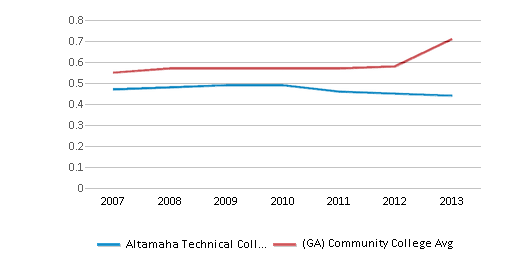
College Completion Rate (Students who graduate in less than 4 years)
46%
31%
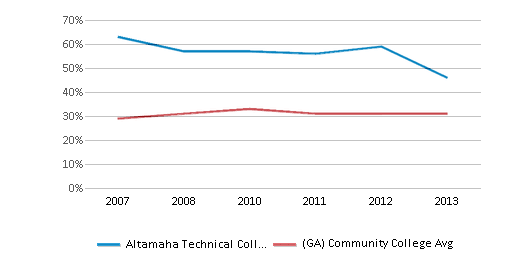
College Completion Rate (Students who graduate in 4 years or more than 4 years)
n/a
0.2368%
Average Graduate Earnings (10 Years)
$26,200
$29,500
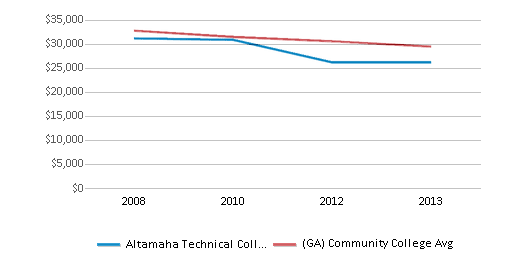
Tuition and Acceptance Rate
% Students Receiving Some Financial Aid
91%
94%
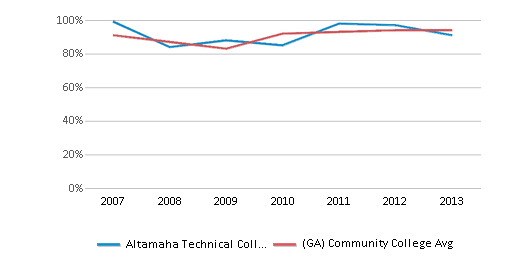
Median Debt for Graduates
n/a
$12,139
Median Debt for Dropouts
n/a
$5,500
Acceptance Rate
n/a
75%
SAT Reading
n/a
465
SAT Math
n/a
450
SAT Writing
n/a
465
ACT Composite
n/a
18
ACT English
n/a
18
ACT Math
n/a
18
ACT Writing
n/a
7
Source: 2013 (or latest year available) Integrated Postsecondary Education Data System (IPEDS)
Recent Articles

Obtaining Your Bachelor's Degree at a Community College
Explore the evolving landscape of community colleges offering bachelor's degrees, addressing affordability, accessibility, and workforce needs.

A to Z of Community College Certificates and Courses
From business and healthcare to technology and skilled trades, the article showcases the breadth of options available to students seeking to enhance their knowledge, develop new skills, or pursue career advancement.

What is a Community College?
This comprehensive guide explains what a community college is, its history, and its role in higher education. It covers the types of programs offered, differences from four-year colleges, benefits of attending, and important considerations for prospective students, providing valuable insights for those exploring educational options.

